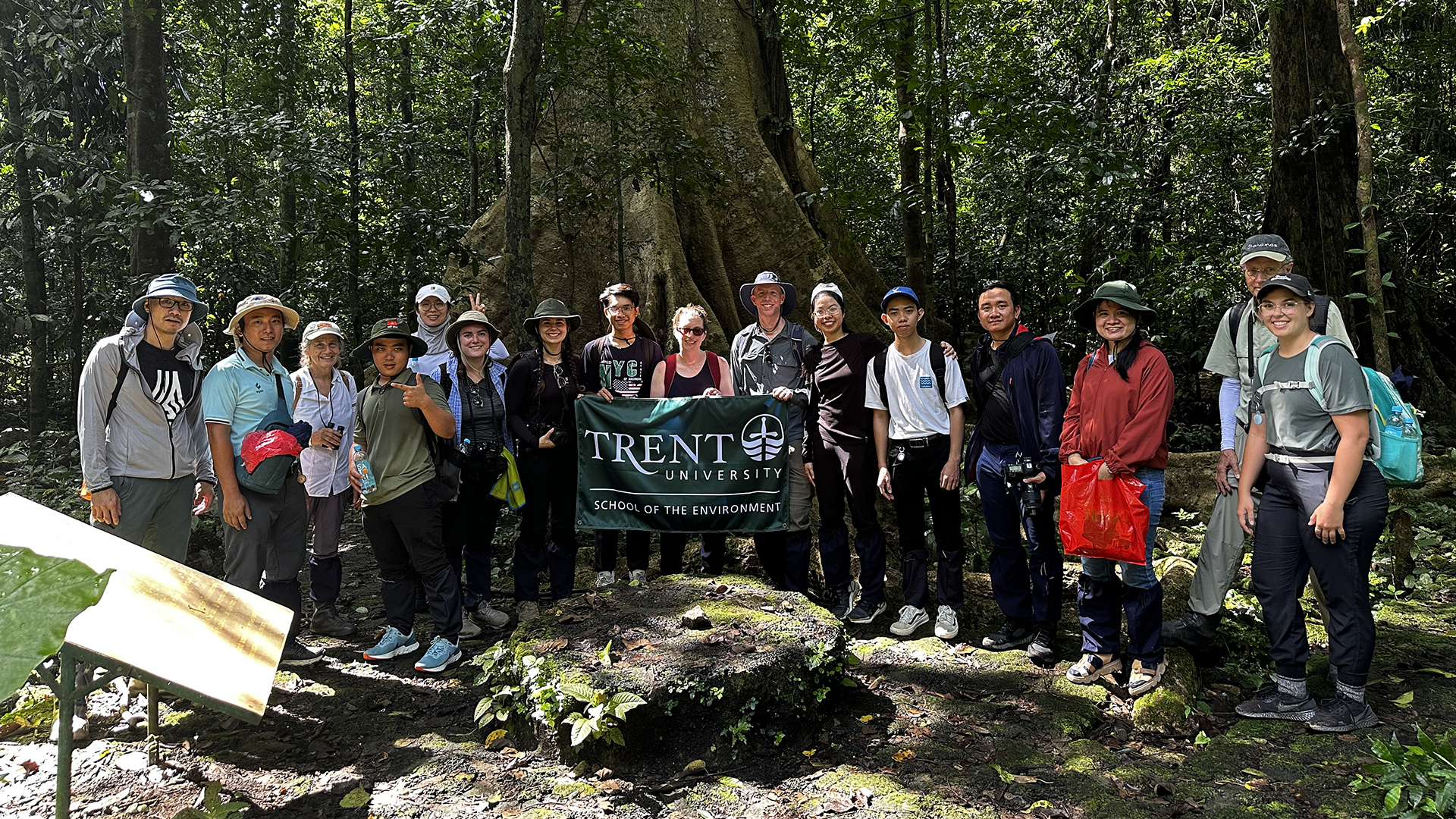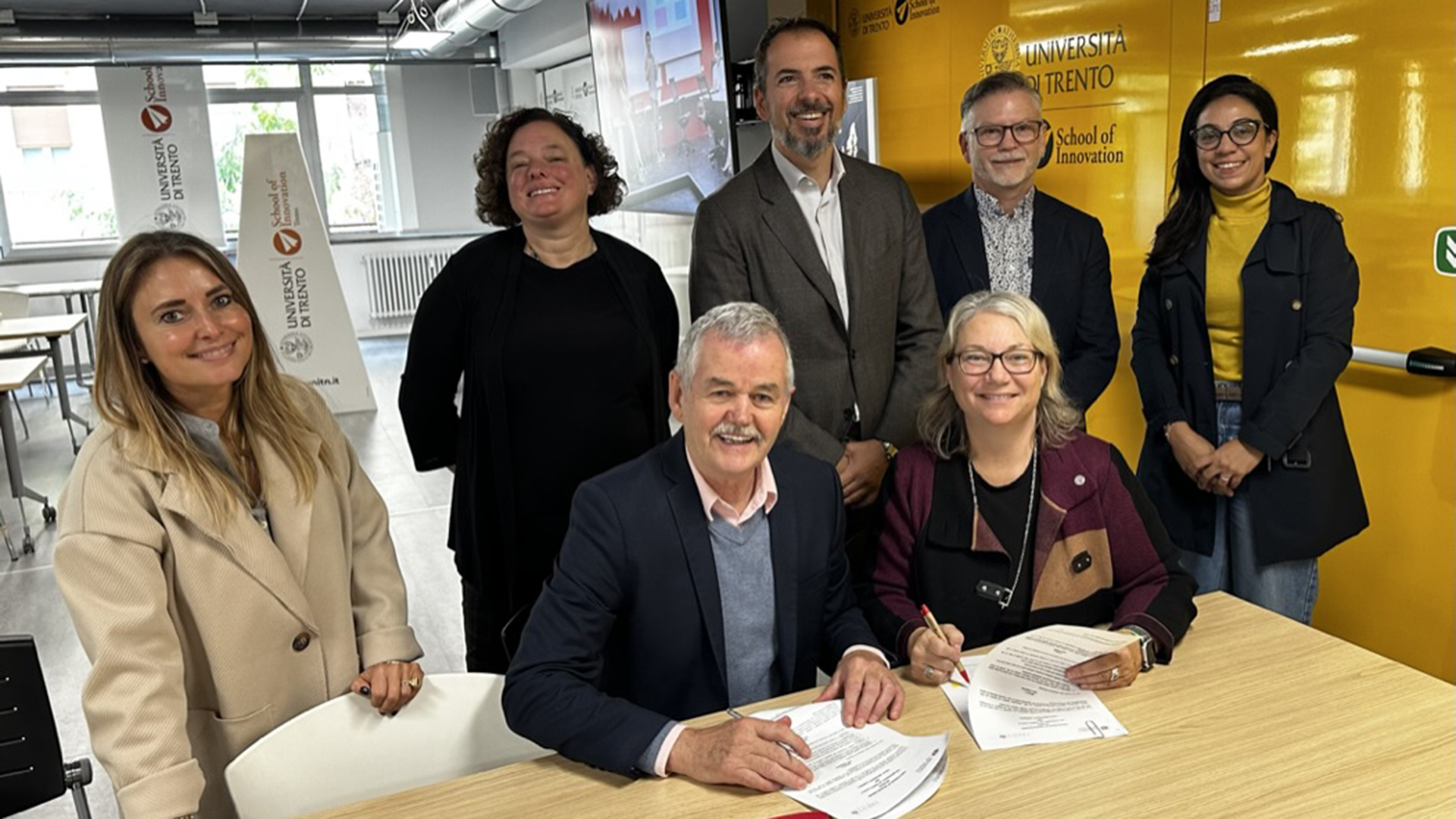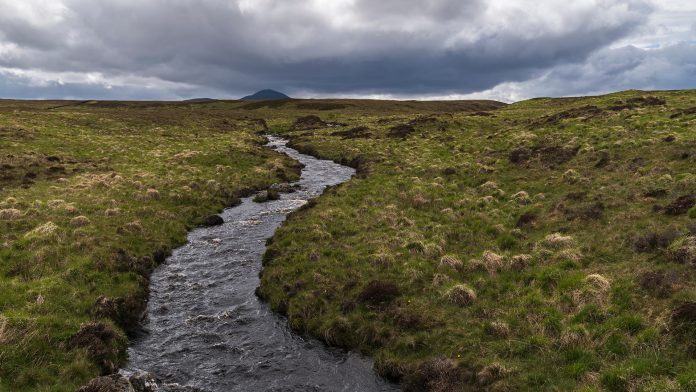Trent University’s world-class research on climate change and sustainability resonates globally.
Climate change is the defining challenge of our era, transcending borders and affecting almost every facet of the Earth, our systems, and our lives. From business operations to politics, social justice movements and healthcare to drought and other extreme weather events, the consequences of climate change are escalating. Together, we need to better understand the complex systems that drive climate change, the short and long-term impacts of these changes, and the types of collaboration that can lead to meaningful actions of mitigation.
Trent University researchers are studying the challenges of climate change locally and globally in the heart of Ontario, Canada.
Dr Cathy Bruce, Vice President of Research and Innovation at Trent, said: “As a university, we recognise that we cannot mitigate today’s multifaceted challenges by operating in a silo. Meaningful innovation happens when groups come together to tackle complex problems, identify sustainable practices, and influence policy. And these efforts necessarily involve international partnerships and research collaborations.”
Trent’s commitment to global collaboration was recently highlighted in a spotlight of the 2023 Research Infosource rankings. The University secured the position of Canada’s number one primary undergraduate university for growth in international partnerships and collaborations. Several illustrative examples of the productive international research relationships that have been forged offer insights into how these relationships propel leading-edge research and help build a talent pipeline that is diverse, creative, and global in reach.
A global constellation of labs
Perhaps one of the most notable examples is the establishment of the International Institute for Environmental Studies (IIES). This dynamic network of more than 22 university, government, and NGO research organisations from across the globe are collaborating through shared expertise, facilities, and research programmes to develop innovative research and policies that help address environmental issues of international magnitude. In January 2024, the IIES announced the University of Toulon in France as its latest member.
Under the IIES umbrella, Dr Huy Dang, a faculty member in Trent’s School of the Environment and Department of Chemistry, is leading the vision of what he describes as an International Research Lab.
Through this constellation of labs, Professor Dang is partnering with researchers from Trent, Ho Chi Minh City University of Technology (HCMUT) in Vietnam, and Université Grenoble Alpes in France to focus on three pillars of study in these varied environments: Pollution, sustainable agriculture, and carbon capture.

The goal is to develop joint research projects, share analytical facilities across the nations and their institutions, and conduct technical training for staff and students. Ultimately, the students who travel to these labs and engage in diverse research experiences will gain broader and deeper knowledge and skills because of their rich international experiences.
Professor Dang emphasised the transformative impact of student involvement in broad collaborations, stating: “It’s essential to provide international experiences to our students, which might represent life-changing opportunities but also support students in working through significant human challenges, such as language and cultural barriers.”
This approach, he believes, contributes to the development of well-rounded individuals poised to become environmental leaders advocating for equal opportunities.
Professor Dang’s inspiration stems from experiences as an environmental scientist who grew up in Vietnam, studied in France, and now conducts research in Canada at Trent University. Professor Dang’s collaborative nature has earned him a Golden Globe Award in Science and Technology for early career scientists.
Professor Dang said: “A single person or nation cannot solve major global environmental problems – we must work together. Developed countries should consider partnering with developing countries so that both can acquire knowledge about how better to address major environmental challenges on a global scale. This is essential in a vision where nations equally contribute to mitigating their carbon emissions.”
The International Research Lab project is funded through a National Sciences and Engineering Research Council of Canada (NSERC) Alliance International Catalyst Grant, as well as support funding from Trent’s Office of Research and Innovation, the Provost Travel Fund, the Office of the President, and the IIES.
Front edge research on microplastics
Plastic pollution has emerged as one of the biggest threats to the environment, animals, and human health, with microplastics now recorded in our oceans, freshwater, soil, and clouds.
Several Trent University researchers are collaborating with international colleagues to ascertain the long-term effects of microplastic pollution on ecosystems and suggest solutions to this universal challenge.
Dr Cheryl McKenna Neuman, an expert in aeolian science, is involved in a three-year international collaboration funded by NSERC to study microplastic transport in atmospheric flows. Her team is collaborating with Dr Joanna Bullard and researchers from Loughborough University in the UK to simulate the airborne transport of microplastics and evaluate their environmental degradation.
According to Professor McKenna Neuman, the properties of synthetic plastic particles are also far more complex than sedimentary particles. They can be moulded, extruded, or blown to form objects of almost any shape or size. They are primarily resistant to corrosion or biodegradation, are good insulators, and are lightweight yet relatively strong.
Professor McKenna Neuman explained: “Professor Bullard and I were previously part of an international working group examining aerosol transport in cold climate regions. This new collaborative project capitalises on decades of experience gained through our collective work in aeolian research addressing wind-borne particle transport. We already had the tools and knowledge to examine the physical mechanisms driving the emission of microplastics into the atmosphere, allowing us to pivot and study the behaviour of microplastics in the environment.”
The collaborators have been conducting experiments in Trent’s Environmental Wind Tunnel, one of only a few worldwide facilities designed to simulate the atmospheric boundary layer in clean air and wind sediment transport. Research findings indicate that microplastic fibres are transported more readily than quartz particles, exhibiting a higher frequency and covering greater distances than initially anticipated.
In a related initiative, Dr Julian Aherne, a professor in the Trent School of the Environment and past Canada Research Chair in Environmental Modelling, together with fellow Global Lake Ecological Observatory Network members, conducted one of the first globally comparable studies on microplastics in freshwater systems using standardised aquatic samples. The group, which included 79 researchers, collected samples across 38 lakes and reservoirs in 23 countries across six continents and found that microplastic concentrations are equally, if not more, prevalent in freshwater systems compared to the marine environment. Lake Maggiore in Italy, Lake Lugano in Switzerland, and Lake Tahoe in the US ranked the highest in concentrations of plastic debris.
Northern resilience and collaboration
With a shared commitment to fostering resilience and sustainability in northern and remote communities, Trent and the University of Edinburgh will host the Northern Science, Northern Stories: An Exploration of Resilient Communities Summit in March 2024. This event builds on both institutions’ work and is affiliated with the University of the Arctic.
The Summit, led by Trent’s Dr Heather Nicol and University of Edinburgh’s Dr Margaret Graham, aims to bring scientists, artists, and Indigenous Knowledge holders together to share insights on the impacts of climate change, as well as other forms of environmental and cultural change in the Arctic and northern regions. The shared goal is to appreciate better and understand various perspectives that emerge at the intersection of science and storytelling.
The event will include workshops, panels, arts-based outputs, and a two-day field trip to the northern reaches of Scotland. Participants will hail from Trent and the UK, Norway, Nunavut, the Yukon, and the Northwest Territories. Artists, performers, storytellers, filmmakers, poets, musicians, and scientists will share knowledge and ways of knowing related to some significantly changing ecosystems of flora, fauna, landscape, and people.
Fostering an interdisciplinary environment
Given the rapid climate change occurring in northern and remote communities, building community resilience by including performance, arts, and storytelling in northern research is all the more critical. Tapping into traditional cultural experiences and knowledge, the Summit aims to build a more profound understanding of the impacts of climate change across regions. It also aligns with Scotland’s Arctic Policy Framework, acknowledging that while science is vital for addressing environmental and social change, it is crucial to broaden our scope and consider other types of knowledge – particularly creative and cultural forms.
Professor Nicol said: “The Summit builds upon Trent University’s growing collaboration with the University of Edinburgh in the area of environmental sciences and broadens the area of interest to include faculty from across the humanities and social sciences. It also aligns with our commitment to fostering interdisciplinary conversations about the resiliency of northern and remote communities and the inclusion of community in scientific, humanities, and social science research.”

University of Trento in Italy
The Canada-Scotland Summit is funded through a grant from the Scottish government’s Arctic Connections Fund and a matching grant from the Canadian Social Sciences and Humanities Research Council.
In the spirit of building collaborations among institutions to share knowledge and expertise, a second and divergent knowledge-sharing summit will be held between the University of Trento in Italy and Trent University in May 2024. This event will bring experts to Trent to discuss innovative research on teaching and learning, focused on critical thinking and innovative teaching methods that better meet the changing needs of students and their future pursuits as leaders.
Dr Fergal O’Hagan, Associate Dean of Trent’s Centre for Teaching and Learning, said: “As our first bilateral summit, we are working to build a depth of relationship between our institutions to foster cross-boundary understandings of critical global issues, sharing our knowledge and practices. Through these collaborations, we create a dynamic global research network and promote a rich exchange of ideas and expertise to tackle matters of shared concern.
Inspiring tomorrow’s global citizens
Trent University is committed to fostering a dynamic learning environment where new ideas flourish and students actively engage in shaping a clean, green, low-carbon economy. Its internationalisation efforts, therefore, extend beyond research, encompassing teaching partnerships, international recruitment, and exchanges with institutions in the United Kingdom, Spain, Italy, Scotland, Vietnam, the Middle East, India, and Pakistan, to name a few. An essential facet of these partnerships is providing students with opportunities to gain knowledge through international exchanges and welcoming students from around the world to study at Trent.
Trent’s dedication to internationalisation is not a recent development. Since 1984, the University has managed an active exchange programme, establishing long-standing study-abroad opportunities with more than 58 partners across 36 countries. This extensive network continues to provide Trent students with invaluable exposure to diverse cultures, ideas, and research methodologies.
These exchanges underscore Trent’s vision of providing students with transformative experiences, nurturing their academic prowess and fostering global citizenship and leadership.
Navigating the challenges of research internationalisation
While the positive impact of bridging borders to achieve previously unimagined breakthroughs is immense, it can come with challenges.
One key challenge involves ensuring sufficient funding to travel across international networks and propel the work forward. Funding from various levels of government on both sides can make all the difference in bringing people together to build new knowledge. Another pressing challenge that all nations face is ensuring their research is secure. At Trent, as with other institutions around the globe, protecting the products of research until they are ready to be shared by the researchers themselves is vital, as is understanding potential risks to a researcher’s work through unwanted access and interference.
Dr Bruce said: “Building long-term, successful global research relationships takes time, trust, and grit. When done well, international collaboration is indispensable in propelling research and innovation toward solutions for global climate and environmental challenges, as well as for greater human connection and understanding of the value of diversity.
“It’s worth the effort when the result involves unlocking scientific discovery and making a global impact.”
Please note, this article will also appear in the seventeenth edition of our quarterly publication.





